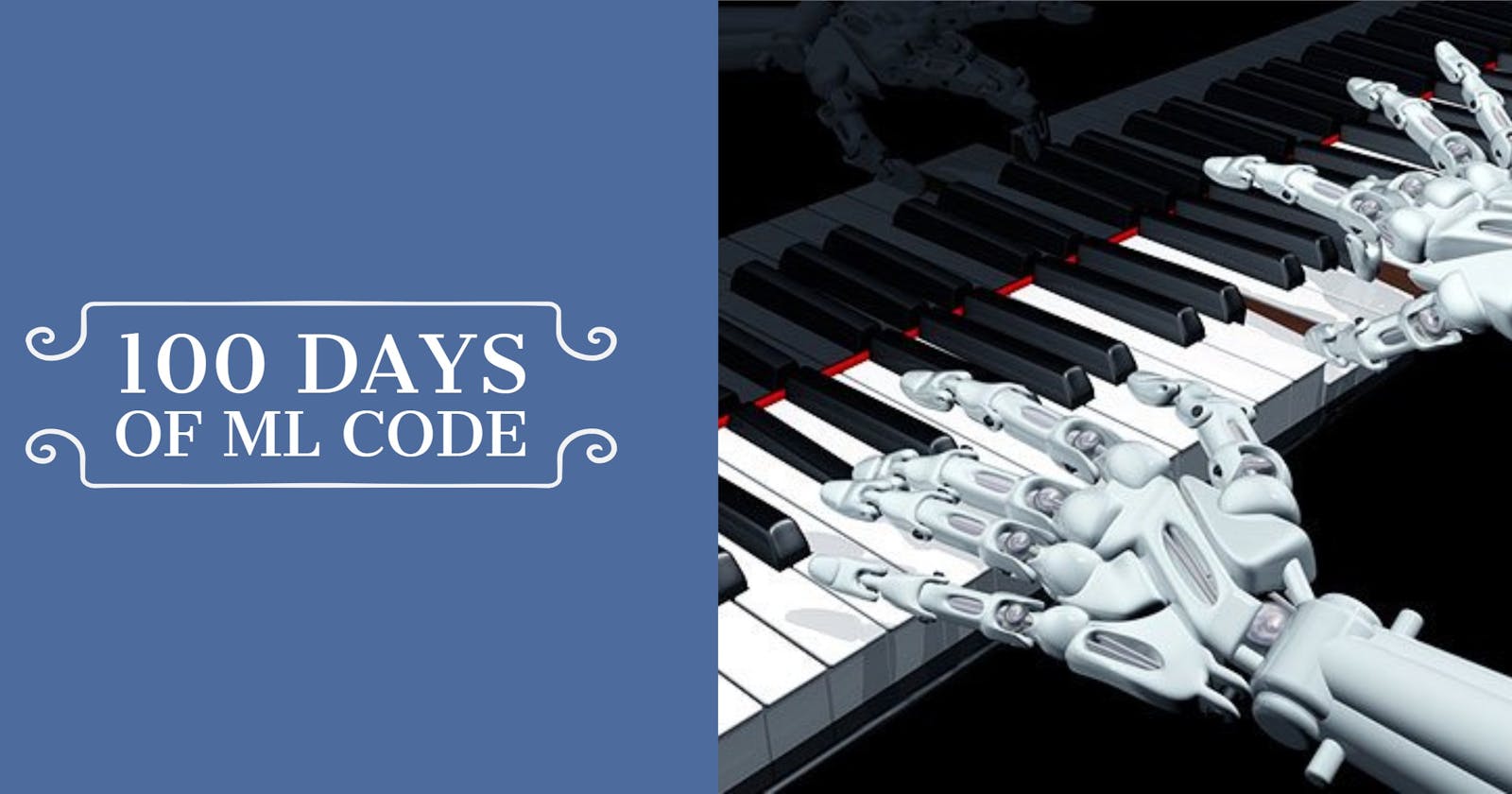Recap From Day 071
Day 071, we ended the part on what the models we have seen have in common. You can catch up using the link below. 100 Days Of ML Code — Day 071 Recap From Day 070medium.com
Working with time
Designing custom algorithms for music
What’s the motivation for designing custom algorithms for music performance? Now we know that machine learning is a very powerful tool to build expressive, subjective musical systems. Machine learning techniques can afford new ways of building musical instruments and musical interaction that are not easily achievable by hand. And machine learning allows the user to provide the system with examples of behaviours of the musical system, for instance, an example of gesture to be recognized.
General purpose machine learning as presented numerous books and courses offers a wide range of techniques such as the ones we saw from day 002. However, sometimes taking a machine learning algorithm from the state of the art may not be enough to reach the desired behaviour for the musical system that we want. After all, conventional machine learning techniques are not necessarily facing the same types of problems than the ones encountered in creative applications such as music.
Typically in music, the subjective character of a performance, it’s interpretation is very important. In conventional machine learning, however, subjectivity is avoided because we want the algorithm to be able to generalize to other situations and other users with the same accuracy. For instance, if we build a speech recognition system, we may not want that our system will be user specific. We want that the accuracy of the speech recognition will be the same for anybody speaking. So general usability is one of the most important criteria for conventional machine learning.
But in music, we may prefer subjective exploration for systems. Trying to play with boundaries of the methods and variations of the inputs. In other words, music performance may require custom algorithms that are inspired by or based on general purpose machine learning techniques but that also embed specific structure that makes them suitable for the type of problems encountered in the design of musical interactive systems.
That’s all for day 072. I hope you found this informative. Thank you for taking time out of your schedule and allowing me to be your guide on this journey. And until next time, be legendary.
References

